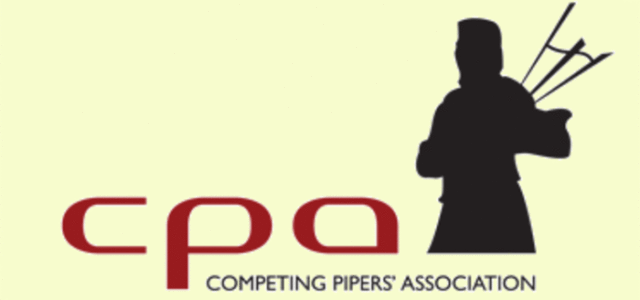
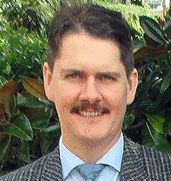
While I applaud the Competing Pipers’ Association [CPA] for taking steps to create a quantifiable method of qualification for the Silver Medal, the system announced on 29th November has some glaring problems within its structure.
The following comments are offered with a view to their being incorporated in a constructive review of the announced system.
Firstly, there was no consultation with the CPA membership. It was just announced out of thin air, without even a mention that the committee was considering changes to the accepted system in place over the previous few years.
Surely a change that has the potential to significantly impact a competitor’s likelihood of qualification should give those competitors a chance to have their opinions heard, indeed, it is those competitors’ opinions that are of most importance.
As I live in Australia, my comments will have an inevitable Antipodean slant, however it does seem that the new qualification system has unjustly punished pipers from the southern hemisphere.
It has always been extremely difficult to convince the eligibility committee of your ability to meet the required standard for Oban and Inverness when based in the southern hemisphere.
[wds id=”2″]
However, the eligibility committee has usually made a sound judgement of who should be eligible to compete, based not only on results in one year, but on a piper’s long term ability, even when inevitable life events sometimes get in the way of the competitor getting to Scotland every year.
The new system has now made it impossible to qualify from the Southern Hemisphere without going to Scotland the year prior to hoping to compete at Oban/Inverness.
As I will get to, this has huge negative implications, for people’s finances, employment and life in general.
The route of qualification by being in the top six of the CPA B grade league table effectively removes overseas players from using this route.
The CPA announcement quotes ‘it is felt that this will deliver the best/most consistent players qualified each year to compete in a strong competition’. This should be caveated with ‘from the Northern Hemisphere’.
Indeed, winning a single qualifying event has nothing to do with consistency, it could be a complete one-off fluke while another competitor could have numerous consistent minor places and not qualify.
UK-based players will clearly have more bites of the cherry, meaning that potentially ‘inferior’ players could sneak in ahead of more deserving players from the southern hemisphere who might only get one or two attempts to win a qualifying event in a given year – if they get over to Scotland at all.
It’s much easier to get a single ‘fluke’ result when you have 10 bites at the cherry, as against two, as well as being easier to accumulate more league table points. Neither route measures up to the CPA’s endeavour to have the ‘most consistent’ players qualify.
New Zealand pipers in particular have an outstanding competitive record in Scottish events. It is extremely disheartening to see the CPA snub the efforts of not just currently active pipers, but the work that has gone on over generations to raise the standard of piping to a level that is competitive on the world stage.
Surely the irony of this move being made in the year that Stuart Easton of NZ won the Gold Medal at Oban, the year after winning the Inverness Silver Medal, is not lost on the CPA committee.
There are at least four major events that are more than large and prestigious enough to host a qualifier in the southern hemisphere: the RU Brown Gold Medal and Victorian Championships in Australia, and Hastings Highland Gathering (NZ Gold Medal) and Christchurch Labour Day in NZ all spring to mind.
I estimate you’d have a minimum of a dozen, and probably more than 20 competitors at these events, particularly if they were known to be qualifiers for the Scottish Silver Medals.
Most, if not all, of those pipers would be of a competitive standard in Scotland. Demand for this event would be high. There are a number of other competitions that would be willing, and able, to host qualifying events but the four above immediately spring to mind.
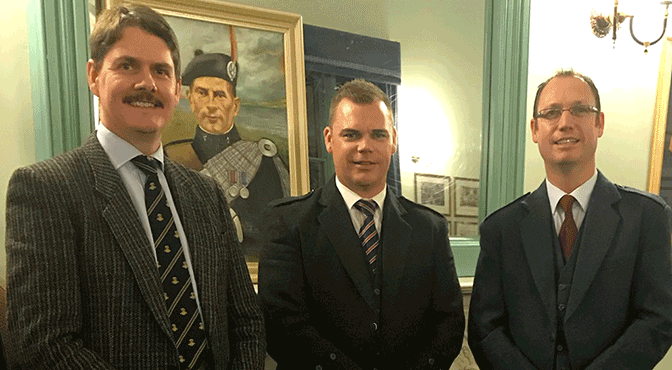
In order to give readers an idea of the magnitude of what it takes to get from the Antipodes to Scotland for these contests, a two-week trip (assuming playing at Oban and Inverness) would cost roughly £4,500 for a two-week trip to just take in the two major meetings.
If you added a couple of additional weeks to take in other qualifying events you can take that up to a total of £7,000 including additional lost wages and living expenses in Scotland.
This is for a single year, yet as I mentioned above, the new system imposes a minimum two-year outlay to play in the medals, if the competitor is lucky enough to qualify in the first year.
A two-year programme to try to qualify and then hopefully compete in the Silver Medal is likely to be in the region of £14,000 at current exchange rates.
This ignores the one way flight time of approximately 30 hours to Scotland from the east coast of Australia (the main population centres), which usually means you hardly arrive in Scotland fresh and ready to put on you best performance straight away.
You can add at least another 3.5 hours each way in the air from New Zealand to Australia. Clearly any more than one journey a year is extremely unlikely, if your boss will even give you the time off!
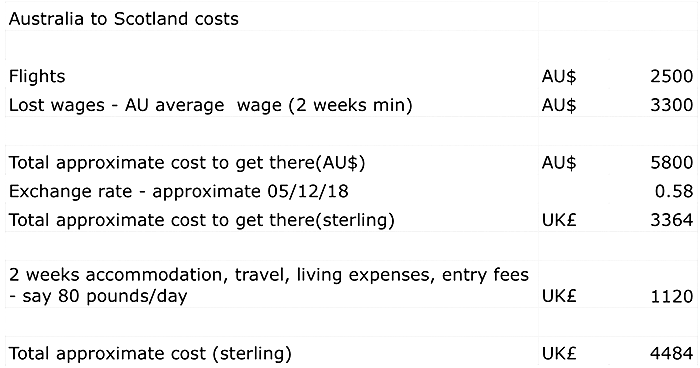
I should add that my comments regarding the handicap suffered due to distances traveled and costs incurred applies similarly, although to a less drastic extent, to competitors from Europe, and even those in remoter areas of Scotland such as the Hebrides and far north.
Those in the Central Belt of Scotland are at a significant advantage due to the ease and relatively low-cost outlay to attend a higher number of events.
Surely the CPA should be trying to provide a fair qualifying system, not a geographically biased one, such as the new proposal.
The old system of the eligibility committee was not perfect, but could at least acknowledge and take account of the relative merits of performers no matter their home locality.
The current proposal ignores highly skilled and competitive pipers in the entire southern hemisphere, and is simply not acceptable if the CPA wishes to promote piping at a global level.
In addition to the above comment the route into the Silver Medal via a CPA A- (A minus) grading completely destroys the fallacy that the new structure is completely transparent, and will potentially cast doubt on whether these A- players deserve to be in the Silver Medal at all.
There is no defined system for how somebody gets an A- grade. This leaves the potential for accusations of abuse being directed at CPA committee members or the grading committee about getting students/friends/relatives favourably graded A- without winning qualifying events.
Even if this isn’t the case, the potential for suspicion is always there, and isn’t transparency the whole point of this change in process?
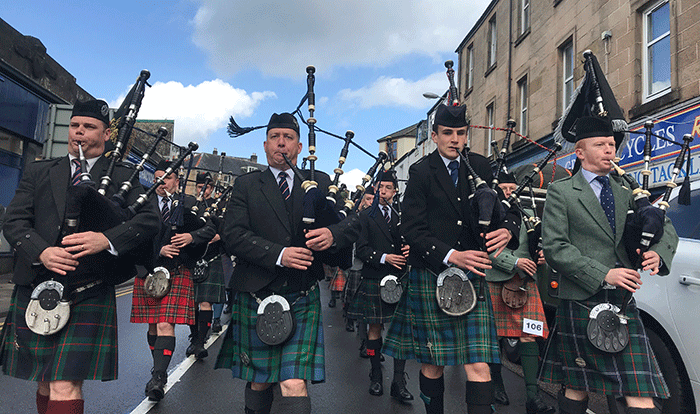
Furthermore, where does this leave prestigious events like the Dunvegan Medal, and the Braemar Gold Medal? Surely winning these, or even a decent prize in these events is more impressive than winning a B-grade event at a highland games.
What about major overseas events such as the NZ Championships where you would almost certainly have to beat Highland Society of London Gold Medalists to triumph?
The new system takes no account of major life events occurring. Coming from the southern hemisphere is a large undertaking, and events such as the birth of a child, new jobs, illness, moving house, family deaths etc can get in the way of going to Scotland every year when the events are on.
If a competitor has to miss a year due to life events, they will have to start from scratch with the new system and do the whole two-year qualification all over again. The proposed qualification system is too rigid in its application.
This is not a reasoned enough process to fairly justify what is obviously very important to many people. At least the existing committee system can make use of human understanding and reasoning to take account of the impact of these events and make a reasonable decision.
As with any new system, there will be teething problems. It does not appear that the new qualification system is set in stone yet, and it would be fantastic if the CPA committee took on board comments from the CPA membership before the qualification process is finalised for the 2020 Silver Medals.
Hopefully, the points raised above can assist the CPA committee to amend the proposal and produce a fairer all round system of qualification for the Silver Medal in future years.
• Read the original story on the CPA’s announcement here. Read a UK-based piper’s view here.
[wds id=”8″]
















A very well articulated and thought provoking article.
Though not a Kiwi nor an Aussie or a South African but an American, not only does Mr. Craig make quite a compelling case outlined clearly here, the new system does indeed benefit the home country and ironically North American pipers which is soundly unfair for our piping cousins down under. I wonder if Mr. Brown, a Canadian and thus a North American, has somehow forgotten to include in his calculations the contributions and strength of those unfortunates and only considered the proposal from an North American perspective? It seems so though I hope to be happily corrected…